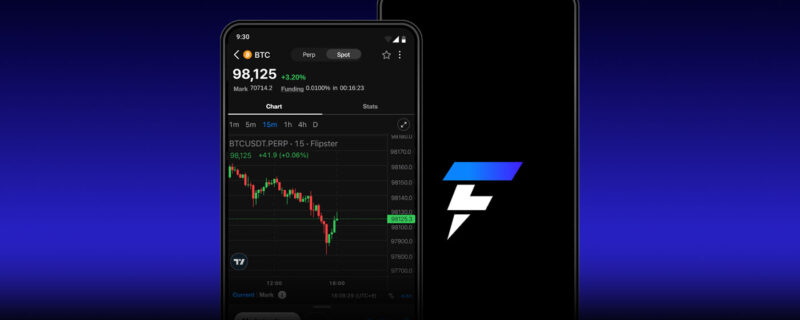
Chainalysis address screening has been a crucial component across various facets of our operations. It has remarkably enhanced our ability to monitor and mitigate risks associated with cryptocurrency transactions in real time.”
Matrixport is on a mission to make crypto easy for everyone. Headquartered in Singapore, the company is one of the world’s largest and most trusted digital asset ecosystems, providing a one-stop shop for crypto financial services to meet the emerging needs of investors. Matrixport’s diverse client base spans various sectors and includes crypto-native investors, high-net-worth individuals, family offices, retail users, and institutional clients like crypto funds, exchanges, and traditional financial investment firms.
The company also forges strategic collaboration with early-stage web3 innovators, helping them build, grow, and scale. Matrixport’s services include Cactus Custody™, spot OTC, prime brokerage services, asset management as well as access to real-world assets through tokenization. Its digital prime brokerage business, Matrixport Institutional, serves over 800 institutions across the US, Europe, and Asia, and is a trusted bridge between traditional finance and crypto markets.
Challenge: Gain better visibility into suspicious on-chain activity
As a busy crypto company with several business lines, Matrixport has a team of nearly 25 compliance professionals and believes that a strong compliance framework is critical to its success. Matrixport had a crypto compliance solution in place, and recognized it was falling short given the high number of false positives encountered in the product and the solution provider’s lack of Mandarin language support, critical for communicating with Matrixport’s development team. The compliance team needed better on-chain monitoring of client activity and more comprehensive blockchain and token coverage. Having fast access to accurate data was also a major priority.
Wei Fen Ong, Compliance Manager at Matrixport, leads the Monitoring and Investigations (M&I) team, a group of analysts dedicated to reviewing potentially suspicious transactions arising from on-chain activities and performing market surveillance of client trades. “Apart from managing our own risk, we strive to help our clients as well,” she said. “We needed to stay on top of suspicious activity and better understand our exposure so we could alert customers to these activities, too.”
In seeking a new compliance solution, Matrixport wanted a dependable partner with a strong track record. Whatever the team chose also needed to be relatively easy to use and seamlessly integrate with the company’s existing systems.
Solution: Comprehensive, accurate on-chain monitoring
Matrixport evaluated four different solution providers. During the selection process, it tested each solution on its wallet address coverage and transaction screening capabilities, including the granularity of transaction details within alerts and the accuracy of the data provided.
Ong was impressed by the scope of the Chainalysis attribution process, which is supported by off-chain research, in addition to on-chain data. On one occasion during the evaluation period, Chainalysis flagged an address as sanctioned when another vendor hadn’t. Ong learned that Chainalysis forensic experts had found the sanctioned address in a YouTube video.
During the evaluation process, Matrixport found that Chainalysis not only had a seamless product interface, but it performed strongly in most of the experiments run. Onboarding, training, implementation, and post-sales support were also key determining factors for the purchase, and Chainalysis stood apart with its product training, as well as the continuous quality support their customer success manager provided.
Once Chainalysis was selected, Matrixport’s M&I team began using the compliance solution daily to enhance its end-to-end compliance architecture. Analysts in the team also obtained certification for Chainalysis products to maximize the capabilities at their disposal. Using Chainalysis for KYT monitoring has significantly enhanced Matrixport’s ability to detect high-risk activities in real time. With the Chainalysis API integration, the team can screen client inflows for any high-risk activity, and if there’s direct exposure to a sanction or funds flowing from a sanctioned entity, the compliance team blocks the transaction for review.
Christopher Liu, Chief Compliance Officer at Matrixport said, “Chainalysis gives us more information and we’re able to take actual tangible action.”
The ability to react quickly to high-risk activity was particularly impactful for Cactus Custody™ — Matrixport’s qualified institutional custodian brand — a service that safeguards digital assets across more than 30 blockchains for over 300 institutional clients.
Ong says, “It’s all about striking the right balance between managing our own risk and the client’s expectations.”
Smooth integration and onboarding experience
Matrixport’s in-house team of developers found the Chainalysis integration to be smooth and well-supported. The detailed information and guidance offered during the process significantly eased the workload on its developers and made onboarding easier. Liu appreciated that Chainalysis offered Mandarin language support to guide Matrixport engineers through the integration process. This wasn’t an option with their previous solution provider, and the Chainalysis team’s dedication to effective communication and support made a big difference.
Chainalysis data seamlessly integrates with the company’s existing systems, improving the efficiency and effectiveness of its compliance processes. The platform serves as a vital component in Matrixport’s tech stack by offering real-time insights on the risk associated with transactions and entities. The company didn’t have this capability previously, and it enhances the compliance team’s ability to make informed decisions fast.
As we continue to navigate the evolving landscape of crypto compliance, we’re confident that Chainalysis will play a crucial role in supporting our efforts and ensuring
the security and integrity of our operations.”
Results: Data accuracy, continuous monitoring, and responsive support facilitate tighter regulatory compliance
Since implementing Chainalysis, the granular categories and classifications it offers have played a crucial role in helping Matrixport detect a spectrum of potentially illegal activities, tailored to the specific legal landscapes of different jurisdictions. For example, the platform’s capability to categorize activities such as gambling, which might be illegal in certain jurisdictions but not universally prohibited, enhances the team’s compliance measures. This level of specificity ensures that Matrixport’s risk management is aligned with the diverse regulatory environments in which it operates.
With Chainalysis, Matrixport has also consistently observed a reduction in response time, from the initial alert to the subsequent investigation and report generation, facilitating quicker and more informed decision-making. The breadth and depth of Chainalysis data are helping Matrixport file higher-quality Suspicious Activity Reports (SARs) too, and the team routinely attaches Chainalysis graphs to its SAR filings.
“Chainalysis address screening has been a crucial component across various facets of our operations,” said Ong. “It has remarkably enhanced our ability to monitor and mitigate risks associated with cryptocurrency transactions in real time. Our clients can engage with our various platforms with even more confidence, knowing that we are proactively enhancing our robust institutional risk management protocols for their transactions and holdings. This added layer of security is in line with our commitment to providing a safe and trustworthy environment for all our clients.”
With its past compliance solution, if there was an alert for exposure to a sanctioned wallet address, Ong’s team would have to research the date of exposure to determine whether it was pre- or post-sanctions designation because the vendor couldn’t provide the date of the
transaction. Now, when a new entity is added to the sanctioned list, the team no longer needs to worry about exposure because Chainalysis’ monitoring provides the necessary and accurate alerts. This type of continuous monitoring has proven invaluable for streamlining the team’s responsibilities, ensuring a more efficient and proactive compliance approach.
Liu shared how the whole team’s jobs have been made easier. “Just meeting our core requirements was important, and then having the ability to measure outputs, dashboards, and reviews so we can quantify the investigations and the ease of usage,” he says. “Now, Wei Fen’s team doesn’t have to log into two systems. When alerts arise, they can move seamlessly from one part of the product to another, start plotting graphs immediately, and then brief me on anything urgent. Or if I receive a law enforcement request, I can quickly search and start plotting all these things.”
While the compliance function is often perceived as constructing roadblocks, Matrixport’s compliance team is a business enabler. Liu says, “We believe that if we instill a strong compliance culture in the company, that translates to business opportunity because it helps us get licenses, gain client trust, and counterparties will want to do business with us because we do things the right way. That’s a huge selling point for us.”
Custom, high-touch support and collaboration greatly valued
Matrixport says its collaboration with Chainalysis has been characterized by a commitment to innovation and responsiveness to client feedback, facilitated by its dedicated customer success manager. Matrixport also appreciates that its IT team can communicate with Chainalysis in Mandarin, and interactions with Chainalysis support have been particularly constructive. The company enjoys participating in feedback sessions and suggesting product features and has been pleased to see its input taken seriously — particularly when Chainlysis expedited the rollout of full support for BNB Smart Chain, popular with Matrixport users.
Matrixport has observed continuous updates to Chainalysis’ products, such as dynamic token support for Ethereum and Optimism. The company feels that the introduction of automatic support for new ERC-20 tokens reflects Chainalysis’ dedication to staying ahead of the curve, and helps Matrixport stay at the forefront of the crypto industry.
Banking on a successful, continued partnership
Looking forward, Matrixport anticipates further growth in its relationship with Chainalysis, backed by continuous expansion of the digital asset ecosystem and evolving compliance needs. Ong says, “As we continue to navigate the evolving landscape of crypto compliance, we’re confident that Chainalysis will play a crucial role in supporting our efforts and ensuring the security and integrity of our operations.”
Liu believes that using Chainalysis helps Matrixport grow the right way, and comforts investors and clients alike. When mentioning the company uses Chainalysis, Liu says investors recognize it as a best-in-class solution. During an onboarding, one discerning institutional client wanted assurance that Matrixport uses Chainalysis services. Providing a service confirmation letter highlighted the company’s commitment to compliance and instilled confidence in the client, Liu says. The request also underscored the importance Matrixport clients place on transparency and credibility of the compliance solution the company employs.
“With Chainalysis, we are fortifying our services with the best-in-class tools for security and compliance, enabling clients to adapt to the evolving regulatory reporting standards and achieve sustainable growth,” Liu says.


